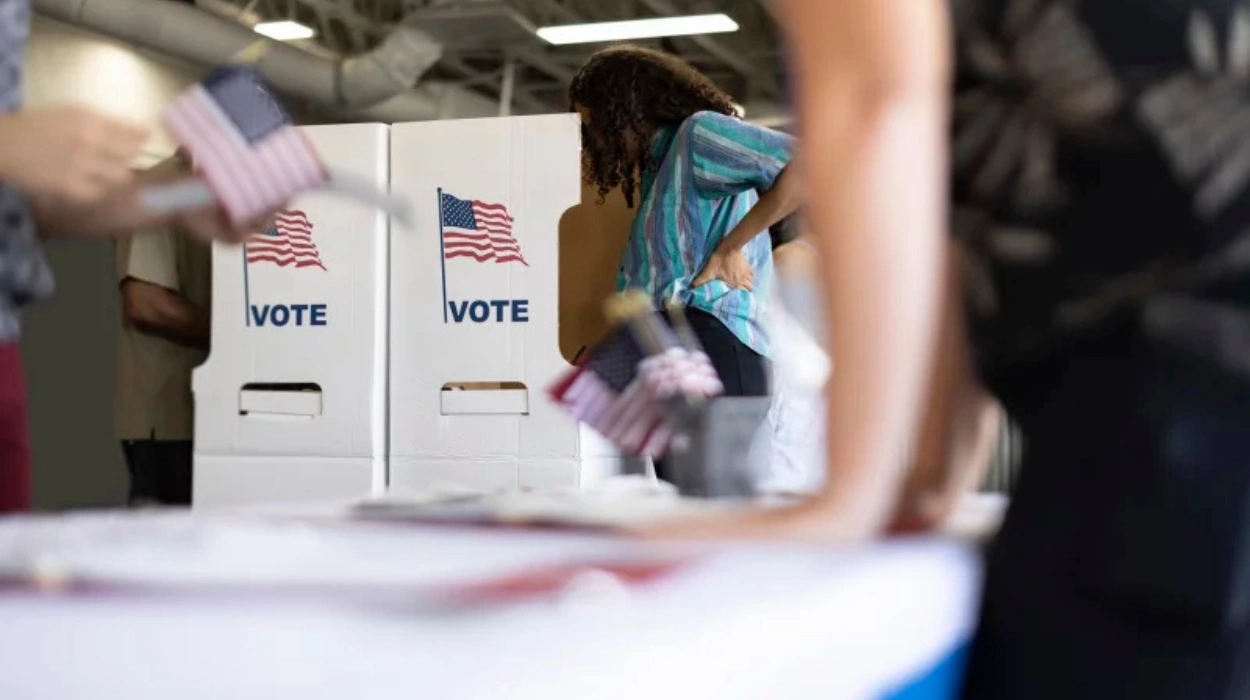US (Washington Insider Magazine) -Every year, the American Psychological Association (APA) releases a report on the leading causes of stress in the U.S. While issues like money, health, and family consistently rank high, the latest findings reveal a new top stressor—politics.
Political Anxiety Crosses Party Lines
According to the 2024 Stress in America report, seven out of ten adults cite concerns about the nation’s future as a significant source of stress. This anxiety isn’t limited to one political group:
- 80% of Republicans rate it as a top concern.
- 79% of Democrats agree.
- 73% of Independents feel the same way.
Lynn Bufka, a clinical psychologist and APA’s deputy chief of professional practice, was surprised by the overwhelming bipartisan concern. She notes that Americans are increasingly skeptical about whether the country’s checks and balances are functioning properly. Many also worry about the potential for political violence following election results.
Declining Trust in Government and Society
Beyond general political stress, the report highlights growing distrust in government:
- 54% of adults say they have little to no trust in the U.S. government.
- 41% of Americans have considered leaving the country due to political turmoil.
- 46% of respondents refuse to date someone with different political views.
- 82% are concerned about misinformation shaping public opinion.
These statistics reflect a deeply divided nation where personal and social relationships are increasingly influenced by political ideologies.
How to Reduce Political Stress
Despite widespread stress, experts say there are effective ways to mitigate anxiety and bridge divides. Tania Israel, a professor at UC Santa Barbara and author of Facing the Fracture: How to Navigate the Challenges of Living in a Divided Nation, suggests the following approaches:
- Engage in Face-to-Face Conversations – Social media often fuels division. Talking directly to others with different viewpoints fosters understanding.
- Get Involved in Civic Activities – Volunteering, coaching, or working the polls can provide a sense of purpose and community.
- Focus on Common Goals – Issues like job security, public safety, and infrastructure improvements affect everyone, regardless of political affiliation.
A Silver Lining: Voter Engagement is Rising
Despite political stress, three out of five Americans feel hopeful about the upcoming election. Additionally, 80% of respondents say they intend to vote—suggesting that political anxiety may be fueling greater civic engagement rather than apathy.
Bufka emphasizes that while division remains high, many Americans still want to find common ground. The challenge lies in relearning how to communicate effectively and work toward shared goals.
Conclusion
The data is clear—political stress has overtaken financial and family concerns in America. While the future may seem uncertain, individuals can take proactive steps to reduce stress, rebuild trust, and foster meaningful conversations beyond partisan lines. Engaging with one another offline, focusing on shared community efforts, and staying informed through reliable sources can help Americans navigate the political turmoil without letting it dominate their mental well-being.
very year, the American Psychological Association (APA) releases a report on the leading causes of stress in the U.S. While issues like money, health, and family consistently rank high, the latest findings reveal a new top stressor—politics.
Political Anxiety Crosses Party Lines
According to the 2024 Stress in America report, seven out of ten adults cite concerns about the nation’s future as a significant source of stress. This anxiety isn’t limited to one political group:
- 80% of Republicans rate it as a top concern.
- 79% of Democrats agree.
- 73% of Independents feel the same way.
Lynn Bufka, a clinical psychologist and APA’s deputy chief of professional practice, was surprised by the overwhelming bipartisan concern. She notes that Americans are increasingly skeptical about whether the country’s checks and balances are functioning properly. Many also worry about the potential for political violence following election results.
Declining Trust in Government and Society
Beyond general political stress, the report highlights growing distrust in government:
- 54% of adults say they have little to no trust in the U.S. government.
- 41% of Americans have considered leaving the country due to political turmoil.
- 46% of respondents refuse to date someone with different political views.
- 82% are concerned about misinformation shaping public opinion.
These statistics reflect a deeply divided nation where personal and social relationships are increasingly influenced by political ideologies.
How to Reduce Political Stress
Despite widespread stress, experts say there are effective ways to mitigate anxiety and bridge divides. Tania Israel, professor at UC Santa Barbara and author of Facing the Fracture: How to Navigate the Challenges of Living in a Divided Nation, suggests the following approaches:
- Engage in Face-to-Face Conversations: Social media often fuels division. Talking directly to others with different viewpoints fosters understanding.
- Get Involved in Civic Activities: Volunteering, coaching, or working the polls can provide a sense of purpose and community.
- Focus on Common Goals: Issues like job security, public safety, and infrastructure improvements affect everyone, regardless of political affiliation.
A Silver Lining: Voter Engagement is Rising
Despite political stress, three out of five Americans feel hopeful about the upcoming election. Additionally, 80% of respondents say they intend to vote—suggesting that political anxiety may be fueling greater civic engagement rather than apathy.
Bufka emphasizes that while division remains high, many Americans still want to find common ground. The challenge lies in relearning how to communicate effectively and work toward shared goals.
Conclusion
The data is clear—political stress has overtaken financial and family concerns in America. While the future may seem uncertain, individuals can take proactive steps to reduce stress, rebuild trust, and foster meaningful conversations beyond partisan lines. Engaging with one another offline, focusing on shared community efforts, and staying informed through reliable sources can help Americans navigate the political turmoil without letting it dominate their mental well-being.


























